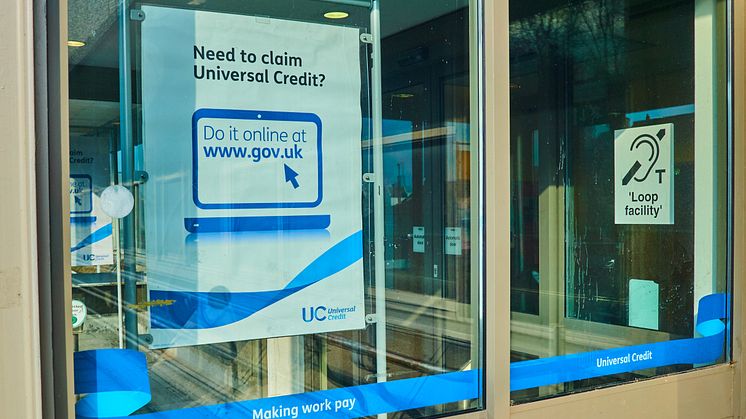
Press release -
Government call for greater financial support for those waiting for Universal Credit
A Northumbria University academic is calling on the Government to provide financial support to people waiting for their first Universal Credit payment.
Dr Mandy Cheetham has contributed to a House of Commons Work and Pensions Select Committee report recommending that starter payments should be made to ensure that everyone has enough money for basics such as food and heating.
The Committee’s newly published report finds that the current wait leaves people with a difficult choice – a minimum of five weeks with no income, or the risk of debt and hardship later.
Dr Cheetham’s research fed into the report and focused on the experiences of vulnerable people and advice and support staff supporting them in North East England. The study was commissioned by Gateshead Council with funding from Fuse, the Centre for Translational Research in Public Health.
She said: "This report is timely given the increasing numbers of people who are moving on to Universal Credit because of COVID-19, which has shown up the stark inequalities facing people in North East England.
"The recent changes made to Universal Credit are welcome, but the increase needs to be made permanent. The need for a supportive, accessible and non-judgemental safety net is essential to help people through these difficult times."
Dr Cheetham, who is Research Fellow in the North East and North Cumbria Applied Research Collaboration (ARC) and an associate member of ‘Fuse, the Centre for Translational Research in Public Health’, addressed the Committee back in June on the impact of Universal Credit and the problems that claimants experience during the minimum five week wait for a first payment.
Some of the evidence the Committee heard suggested that people on Universal Credit are more likely to need a food bank or have rent arrears than people on the legacy benefits that it replaces, and that moving to Universal Credit may lead to a rise in psychological distress.
The study led by Dr Cheetham found that the aims of Universal Credit - to simplify the benefits system and move people into work - are simply not being met. Instead, people moving onto Universal Credit, who participated in the study including those with disabilities, health problems or complex lives, reported lengthy delays before receiving their first Universal Credit payment in full.
As well as this, once the payment is received, deductions for advance payments, historic over payments and rent arrears are leaving people without enough money to eat or pay essential bills.
The Work and Pensions Select Committee report recommends that:
- A starter payment - equivalent to three weeks of the standard allowance - would be a simple way of ensuring that new claimants have the money they need for basic living essentials.
- The Department of Work and Pensions (DWP) should make the move for people on existing benefits seamless and pay a starter payment in other cases.
- Advances should still be available for people who need further support to get by, but they should be renamed ‘new claim loans’ to make clear that they will need to be repaid. The DWP should also recognise that a request for a loan is a clear indication that someone is struggling and offer support as early as possible.
- Changes to the way that historic tax credit is clawed back from people when they move to Universal Credit, and for DWP’s debt collection to follow best practice in the private sector.
- The Government make permanent the £20 per week increase in the standard Universal Credit allowance announced in response to the coronavirus pandemic.
The study led by Dr Cheetham in partnership with Professor Suzanne Moffatt from Newcastle University and Dr Michelle Addison from Northumbria University was published in leading medical journal BMJ Open (2019) which found that people moved on to Universal Credit are fighting to survive and being forced into debt, rent arrears and extreme hardship, with serious consequences for their health and wellbeing.
Topics
Categories
Northumbria is a research-rich, business-focused, professional university with a global reputation for academic excellence. Find out more about us at www.northumbria.ac.uk --- Please contact our Media and Communications team at media.communications@northumbria.ac.uk with any media enquiries or interview requests ---









